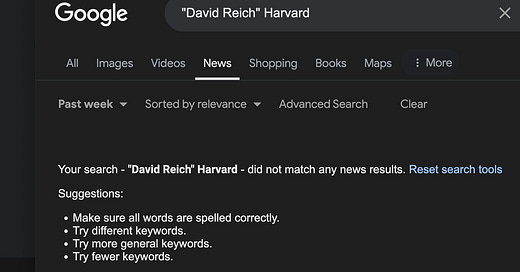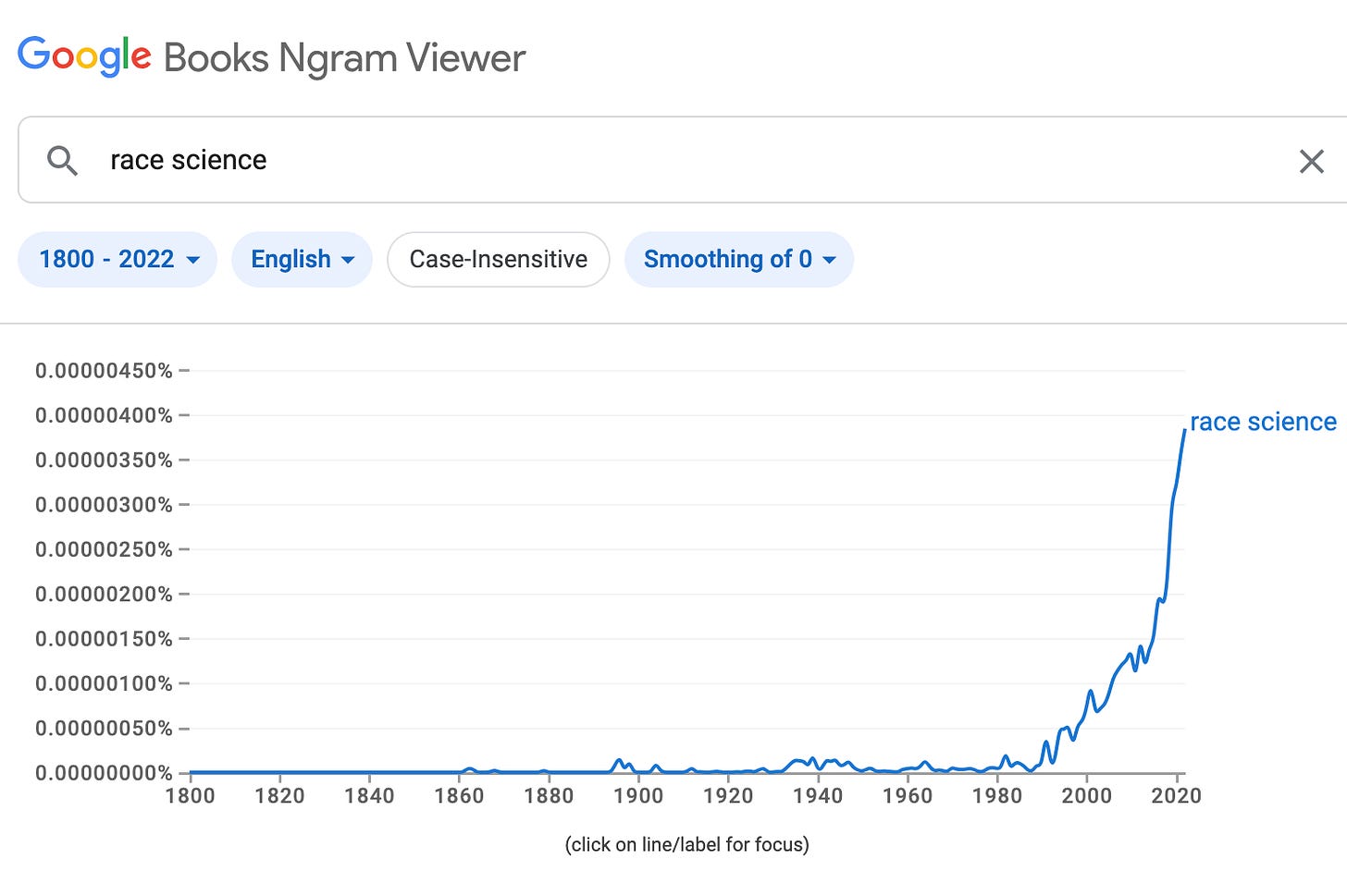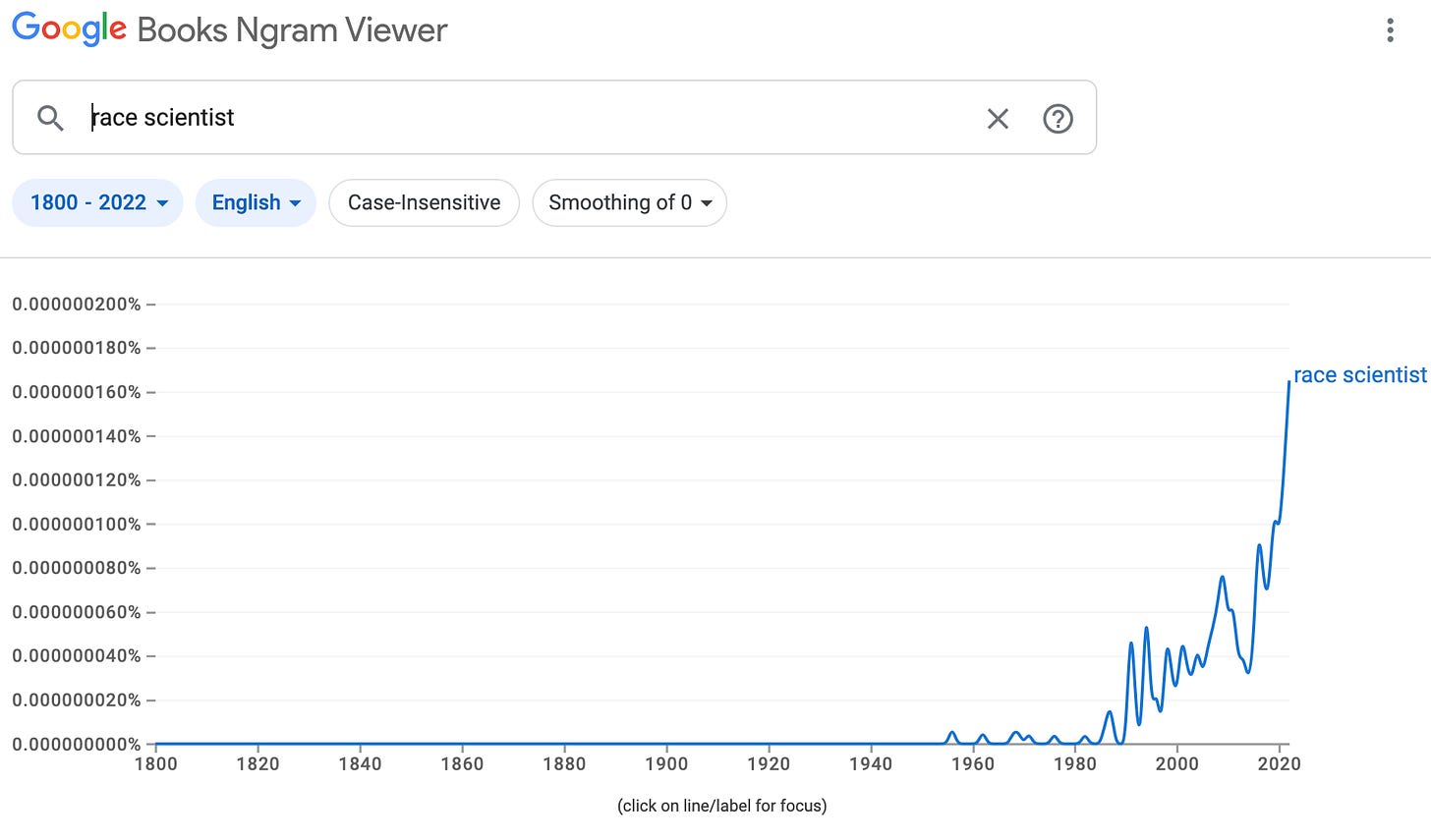Why no news coverage yet of David Reich's epochal paper?
Reich is the Shohei Ohtani of ancient DNA, so why is his big 9/15/24 preprint still Not News Fit to Print?
As I pointed out here on my Substack on Monday, a team of star geneticists led by Harvard’s David Reich posted on the preprint server bioRxiv last Sunday, September 15, an important paper with the not humble title of:
Ali Akbari, Alison R. Barton, Steven Gazal, Zheng Li, Mohammadreza Kariminejad, Annabel Perry, Yating Zeng, Alissa Mittnik, Nick Patterson, Matthew Mah, Xiang Zhou, Alkes L. Price, Eric S. Lander, Ron Pinhasi, Nadin Rohland, Swapan Mallick, David Reich
doi: https://doi.org/10.1101/2024.09.14.613021
This article is a preprint and has not been certified by peer review …
Abstract
We present a method for detecting evidence of natural selection in ancient DNA time-series data that leverages an opportunity not utilized in previous scans: testing for a consistent trend in allele frequency change over time. By applying this to 8433 West Eurasians who lived over the past 14000 years and 6510 contemporary people, we find an order of magnitude more genome-wide significant signals than previous studies: 347 independent loci with >99% probability of selection. … Discoveries include … selection for combinations of alleles that are today associated with lighter skin color, lower risk for schizophrenia and bipolar disease, slower health decline, and increased measures related to cognitive performance (scores on intelligence tests, household income, and years of schooling).
That’s big, especially the last dozen words. IQ is the ditch that the conventional wisdom against the existence of human biodiversity has decided to die in.
Note two other famous old-timers among the authors:
Nick Patterson is Reich’s mathematical idea man. He started his career working for British Intelligence in what might be said to be Alan Turing’s old job. Then he went to Jim Simon’s Renaissance Technologies, that rare hedge fund that doesn’t get rich charging clients fees (in fact it has very few clients because why should the employees share their genius with clients?). Patterson got properly rich by 2000, and then in his 50s looked around for a worthy new challenge for his gifts at analyzing data, which turned out to be ancient DNA.
Eric S. Lander is the founding director of the lavishly funded Broad Institute, the joint research venture of MIT and Harvard. He was a Biden Administration cabinet officer as the President’s Science Adviser in 2021-22. In other words, Lander isn’t some fringe crackpot pseudoscientist, he’s about as respectably Establishment as a scientist can get. He’s got a lot to lose.
I imagine some of the younger co-authors will also become famous over time. The David Reich Lab attracts top talent.
Here’s Razib Khan’s podcast on what’s in this “blockbuster” paper.
So why can’t Google find any coverage of this paper anywhere in the English language news after 5 days in release? It would seem like back in the days when Nicholas Wade was the New York Times’ genetics correspondent, the Times would have been all over this paper by now.
Maybe I’m being paranoid, but I suspect the prestige press’ hesitancy to write up this extremely prestigious set of scientists’ paper is due to the growing mania over the Menace of Race Science.
Granted, Reich’s paper focuses solely on a single major race, West Eurasians, what the federal government would have called Caucasians or whites until the Biden Administration decided it was in their political self-interest to invent a new race it calls Middle Eastern and North African.
But the paper explodes the old Stephen Jay Gouldesque conventional wisdom that humans don’t evolve fast enough for all but the most trivially superficial racial differences to have evolved. Instead, the last 14,000 years, which saw the end of the last Ice Age, much of the peopling of the New World and the Pacific, and the invention of agriculture, has seen humanity respond to these new challenges both culturally and genetically.
But as the evidence for a realistic view of race piles up, the gatekeepers of respectability are getting antsier.
For example, you almost never saw the term “race science” until the technology finally started to emerge to measure people’s racial ancestry from their genes:
During the Great Awokening mania, the uses of the words “race science” or “race scientist” (always used as a slur) have gone vertical:
I’m sure the mainstream media will eventually write up Reich’s paper, but so far they sure aren’t in a hurry to put out the story first.
By the way: I’m doing book tour appearances in Chicago next week to promote my anthology Noticing: dinner on Thursday evening September 26th downtown and a speaking event on Friday night September 27th on Chicago’s north lakefront. See Passage Press’s website for tickets.







I tried posting this paper on an anthropology sub on Reddit and it was removed almost immediately with the mods claiming it was flawed and "uncited". All my comments attempting to explain it were downvoted to oblivion. It was obvious that not a single one of them actually bothered to read it. I wonder if they have any idea who David Reich is.
Also, the paper doesn't actually test on "West Eurasians" as a whole but specifically Europeans despite them using the term West Eurasian. I think there would be noticeable differences between Europeans and Middle Easterners in selection for those traits, so I wish they'd just been more specific and said European anyway. They made the title very vague too. Both of these decisions were probably motivated by a desire to mitigate controversy to some extent. Political correctness...am I right?
I like Reich's paper because it supports my hypothesis that phenotypic change is always first and foremost driven by behavioral change.
One might say that environmental change drives behavioral change, but environment is not always necessary or sufficient to do so.
When it comes down to it, life becomes what it does, and humans are no exception. I like this idea because it puts genes in their proper perspective:
Not as deterministic agents in their own right, but rather as dutiful servants of the will to live.